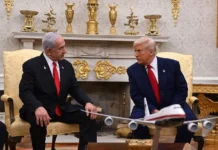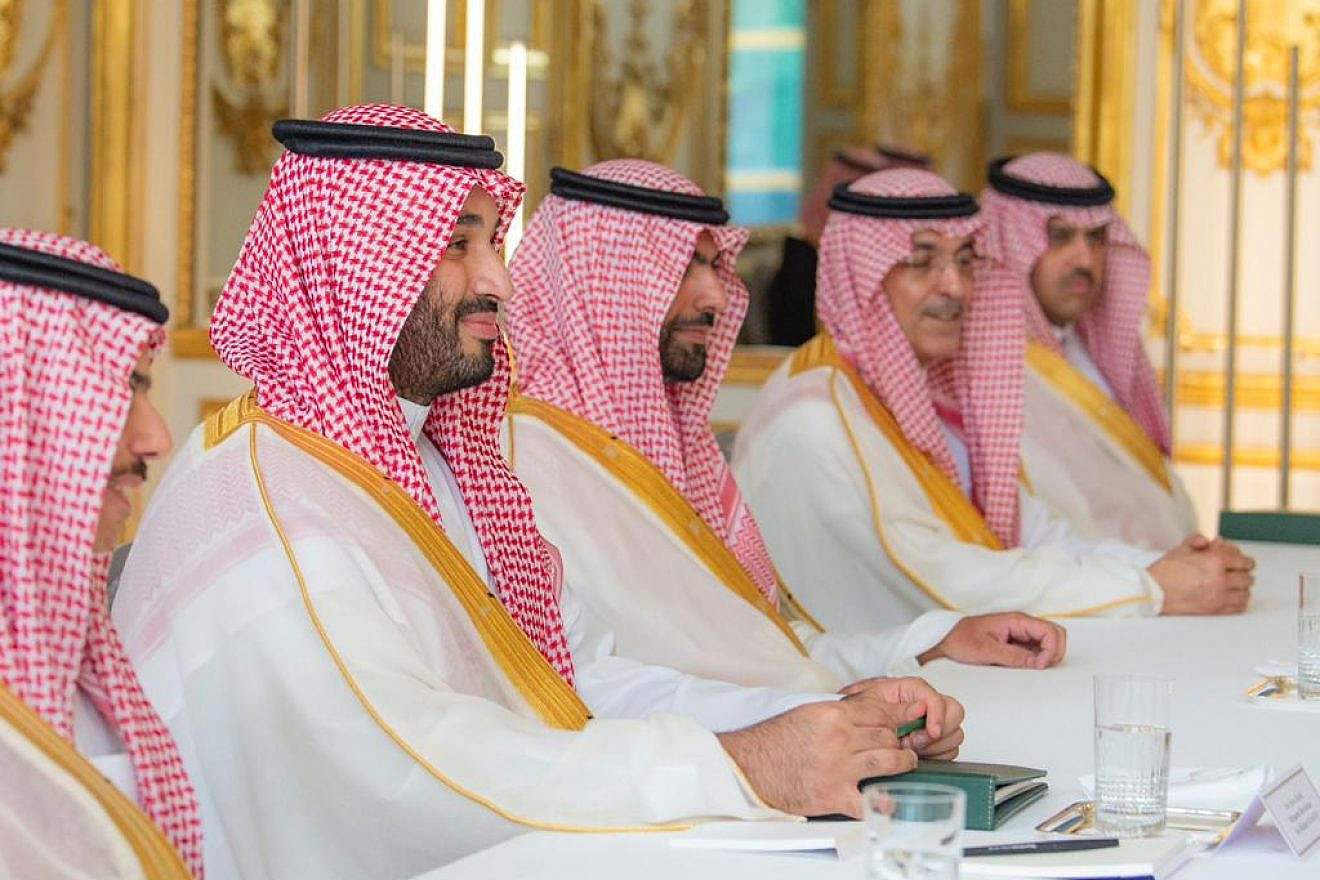It is important to refute the many arguments being bandied about against a peace deal involving Saudi Arabia, Israel and the United States.
I think that the doubters and naysayers, as well as those who are actively trying to sabotage such an agreement, are wrong. Wrong about the chances for a deal (I think they are high), wrong about the risks of a deal (much lower than feared) and wrong about the worth of a peace breakthrough (much higher than imagined).
The Saudis themselves seem keen on a deal. Faisal J. Abbas, editor-in-chief of the Saudi Arab News, wrote this week that Saudi normalization with Israel is eminently possible: “It is highly likely that such a deal might be possible.”
“Unlike Tehran,” he continued, “Riyadh’s position has never been ideological in the sense that we never preached—or to be more precise pretended to preach—throwing Jews into the sea (while secretly getting weapons from Israel during the war with Iraq, as Iran did in the 1980s). Crown Prince Mohammed bin Salman told The Atlantic magazine last year that the Kingdom sees Israel as ‘a potential ally.'”
Alas, Faisal Abbas’s optimism has been met with a brick wall of negativism on the political left and right in Israel and in Washington, with analysts and politicians on all sides pouring freezing cold water on the likelihood and value of a tripartite U.S.-Saudi-Israel agreement.
Some people who know the Saudi mind say that Mohammed bin Salman (MBS) will wait for a different U.S. administration before moving forward. He has not and will not forgive U.S. President Joe Biden for whipping and snubbing him over the past three years. “Never will MBS give Biden a diplomatic win by making a grand regional peace deal now,” I have been told.
Some people on the Israeli right are already climbing the ramparts against a deal, calling it a “honey trap for Israel” or even “suicidal.” This is because according to various reports (which I think are greatly exaggerated), the deal with the Saudis would “cost” Israel too much.
In particular, the right suspects that the left in America will make Israel pay in hard diplomatic currency for a deal with the Saudis, that the left will force on Israel a freeze on settlements or territorial withdrawals in Judea and Samaria, and furthermore tie Israel’s hands behind its back in combating Palestinian terrorism.
The Israeli right fears that Prime Minister Benjamin Netanyahu plans on using a deal with the Saudis to break up his current right-wing coalition government and tack to the center while bowing to the diplomatic demands in the above paragraph.
Some people on the hard political left in the U.S. oppose a deal with the Saudis and Israelis because of their intense dislike for MBS and Netanyahu. In progressive circles, giving any “win” to the detested Saudi and Israeli governments is anathema, even if this makes strategic sense and would be good for Biden’s reelection chances too.
These extremists absolutely refuse to see a grand regional peace deal as a win-win-win scenario. They are busy listing all the reasons not to trust MBS and Netanyahu and compiling even longer lists of all the things that Mideast leaders “must do” before gaining any traction in Biden’s Washington—which is a way of scuttling an agreement.
For Saudi Arabia, this means it “must” pull away from oil market coordination with the Russians and “must” distance itself in all diplomatic and trade matters from the Chinese. For Israel, this means it “must” permanently abandon plans to annex the West Bank, “must” permanently abandon judicial reforms, “must” stop all settlement activity and dismantle outposts, “must” withdraw from territory and give more power to the Palestinian Authority, etc., etc.
Tom Friedman of The New York Times is the classic representative of this destructive camp. He has been on a campaign for a year to crash any movement towards an “unholy trinity”—a U.S.-Saudi-Israeli deal. He prefers to see Netanyahu booted out of office, MBS isolated, runaway Palestinian statehood established and another Obama-style sell-out nuclear deal with the Iranians secured.
Friedman published a column last week that was quoted around the world because it seemingly came straight from the horse’s mouth—Biden’s mouth—but major parts of the column did not. When read carefully between the lines it becomes apparent that Friedman was less channeling Biden and more seeking to hem Biden in, to block Biden from making the “mistake” of a U.S.-Saudi-Israel deal.
All the things Friedman listed that Saudi Arabia and especially Israel “must” do before gaining Washington’s grace were not Biden’s words; they were Friedman’s sour and obstructionist add-on opinion. I am equally certain that Friedman solicited and even ghost-wrote the negative quote attributed in that column to U.S. Senator Chris Van Hollen (D-Md.): “I can assure you that there will be a strong core of Democratic opposition to any proposal that does not include meaningful, clearly defined and enforceable provisions to preserve the option of a two-state solution.”
That is Tom Friedman barking and building barricades against a regional deal, not Biden talking sensible strategic reality.
Despite these naysayers and saboteurs, my sense is that the chances for a deal are high, the risks of the deal are manageable and the value of a deal is overwhelming.
Biden, Netanyahu and MBS have the opportunity for breakthrough diplomacy that will transform the Middle East for the better. If they want to, and I believe they do, each of the three leaders can overcome domestic fears and doubts about an accord. The case for a deal is stronger on strategic grounds than any counterarguments.
For Israel, normalization with Saudi Arabia is worth a ton. It would gut 120 years of Arab ideological warfare against the Jewish return to Zion, and deal a death blow to the progressive-woke assault on the legitimacy of Israel (especially if the peace is brokered by a Democratic president). It would be a near-messianic advance that further cements Israel’s permanence in the region and its standing in the world.
Therefore, in my view, attaining peace with Saudi Arabia indeed justifies some adjustments in the governing Israeli coalition and in Israeli policy. Not at any price, but at reasonable accommodation.
I would not promise territorial withdrawals, nor scale back one whit Israel’s anti-terrorist operations against Palestinian attackers, nor bow before Obama-esque concessions towards Iran. But I don’t believe such steps will be necessary. The Saudis expect nothing more than lip service to the Palestinians and nothing less than ardent opposition to Iran.
What might be necessary in the process of securing a full peace accord with Riyadh with Washington buy-in are practical adjustments (that Netanyahu may anyway prefer) like bringing opposition leaders into government, postponing additional judicial reforms, even promising not to annex Judea and Samaria for, say, another five years. Israel can live with this.
Israel also can live with the Saudi demand for a civilian nuclear program (if it is under tight U.S. supervision) and the sale of additional advanced U.S. defensive weaponry (like the THAAD missile system) to Saudi Arabia.
If this is what it takes to make history, to end the Saudi-led boycott of Israel (and to consequently further wedge the Palestinians into a situation where willy-nilly they will have to compromise with Israel, inshallah)—so be it.
Again, peace with Saudi Arabia should not come at an appeasement price that will undermine Israel or strengthen Palestinian terrorists. But accommodation on the contours described above would be a no-brainer for Israel, a mega-historic opportunity that can’t be missed.
Originally published by Israel Hayom.
























